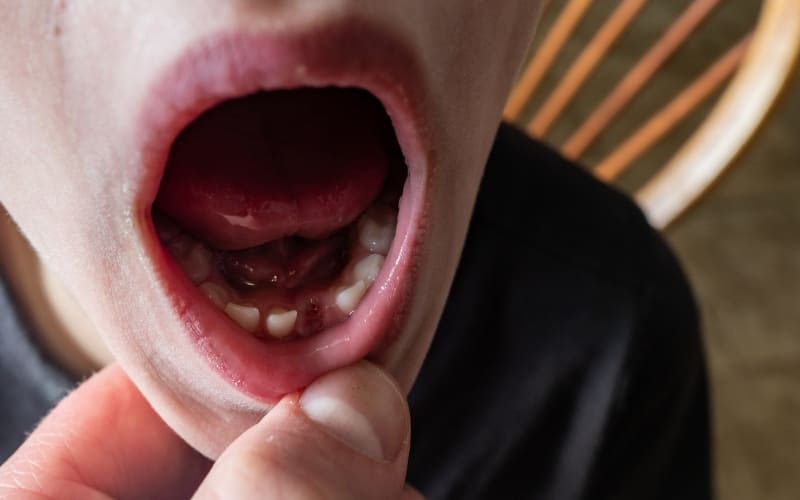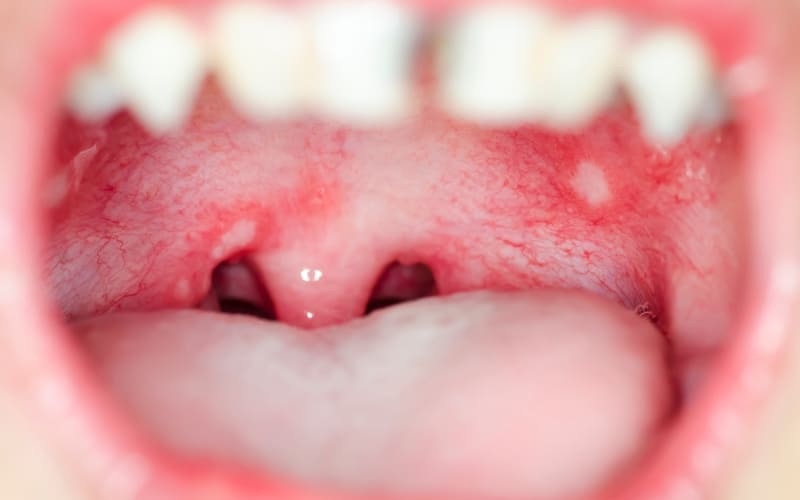


Bad lingering breath is annoying. One day, it signifies regular morning odor; another day, it can be due to small chunks of calcified material called tonsil stones. Identifying what’s causing your mouth odor is important in choosing the right next step—home remedy, dental visit, or referral to a specialist. This guide sticks to facts and helps you find relief from this embarrassing oral concern. Learn more below.
What tonsil stones are and why they stink
Tonsil stones (tonsilloliths) are small whitish or yellowish deposits that form in the tonsils. Debris and bacteria get in and harden, emitting volatile sulfur compounds (VSCs), which give off an unpleasant odor. They are usually benign and cause no symptoms; others result in an unpleasant taste, irritation of the throat, or a feeling of something being stuck.
Quick signs it’s a stone, not regular “morning breath”
- You notice a white speck in a tonsil pocket that can be dislodged.
- Bad breath comes back quickly in spite of brushing and flossing.
- You feel a nagging “foreign body” when swallowing.
- Sore throat or earache flares on the same side as the speck.
When “just bad breath” speaks within the mouth
Chronic halitosis most often starts in the mouth itself. Studies from halitosis clinics report ~75–90% intra-oral causes, with tongue coating leading the list, followed by gingivitis/periodontitis. Addressing biofilm on the posterior tongue and treating gum inflammation often improves breath more than chasing every tonsil speck.
If you’re struggling with this condition, you might be wondering whether to contact a Beverly Hills dentist or an ENT first. Read on.
Who to consult first and why
Start with your oral health team if odor persists even after brushing and regular flossing. Ask about tongue debridement, periodontal examination, and xerostomia (dry mouth) risk. Searching for the best Beverly Hills dentist will not exclude a tonsillar etiology by itself, but a thorough assessment can rule out the common oral issues before approaching the throat treatment. For recurrent stones or recurrent tonsillitis, an otolaryngology consult is beneficial.
What works today
- Hydration + saltwater gargle. Warm salt water can soothe your throat tissues and may dislodge small stones.
- Soothing oral cleaning with water. Low-pressure water flossers used cautiously can aid in cleansing stones; avoid using a sharp object.
- Follow regular oral hygiene practices. Scrape or brush the dorsum of the tongue to remove debris.
If pain, swelling, fever, or frequent stones persist, consult a doctor. Recurring infection or chronic symptoms are reasons for in-office treatment.
If you struggle with recurrent infection or sleep-disordered breathing with obstruction, it might be tonsillectomy. For symptomatic tonsilloliths that conservative treatment fails to heal, you might need to consult an ENT.
If you can’t see stones, focus first on tongue care, gum health, and dry-mouth concerns. That step-wise approach saves time and health without guesswork.
Book a visit with West LA Beverly Hills Oral & Facial Surgeon, and we’ll check oral issues, coordinate care when you’ve tonsil issues, and map a care plan that fits you.




